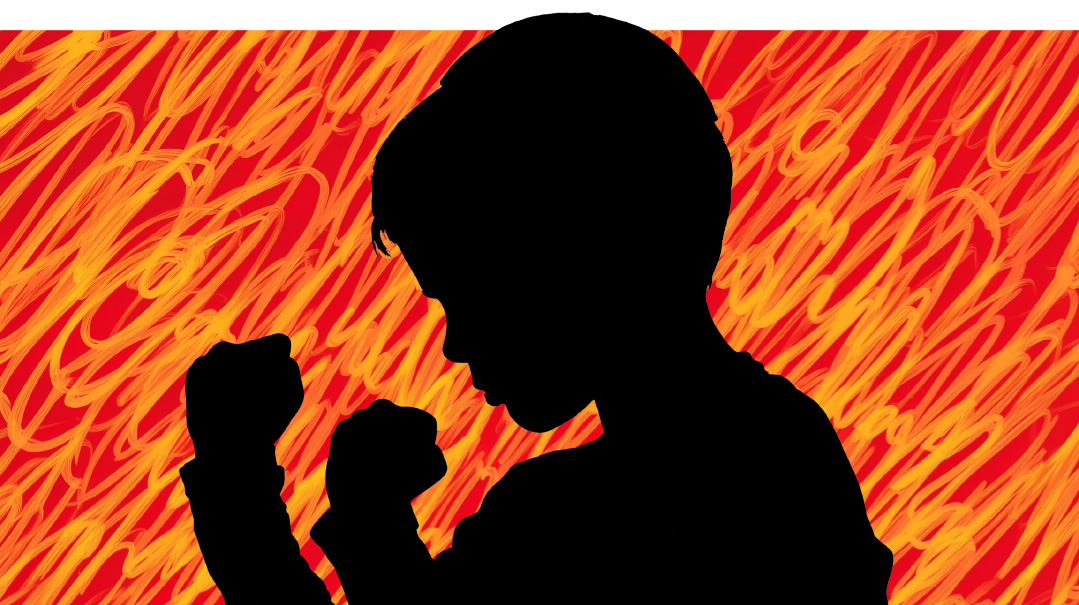Know This: Baalat Teshuvah
| June 19, 2019As hard as it can be to be an outsider, since becoming frum I’ve felt so much ahavah from all the “insiders”

M
y story starts years before I traded in my jeans and T-shirts. It began in college. I’d never seen a frum person in my life when I met that rabbi on college campus. With his long beard and tzitzit, I thought he looked like he’d popped out of a history book; I was shocked that he even existed. But as I got to know him, his rebbetzin, and the other young professionals who reached out to us college students, I realized that I liked what I saw in their lives: fulfillment, happiness, focus on family life. I wanted that too, but I knew I couldn’t be as religious as them.
Slowly, over the course of a few years, I began taking on more and more mitzvot, beginning with giving up shellfish (that’s a mitzvah, right?). I really didn’t know the first thing about Yiddishkeit. On the first Yom Kippur that I observed, I knew you couldn’t eat, but no one had told me you weren’t allowed to drink. Having as much water as I wanted certainly made fasting easier!
From there, I began making Friday night dinners with friends, which eventually progressed to becoming shomer Shabbat and shomer kashrut. I had big plans to keep those jeans and T-shirts, but I’m more of a go-big-or-go-home personality, so last (but certainly not least), I gave away all those beautiful designer jeans that I loved.
Today, when you see me, you’d never know I’m a baalat teshuvah. However, you can wear the shell, the skirt, the wig, the tights, and look like everyone else — but that doesn’t always mean you feel like you fit in. There are many things I and other baalei teshuvah struggle with that an outsider — who’s really an insider to the frum world, of course — would never know.
There are the times when I’m glad I can slip by unnoticed, but even well-meaning people can make it hard to hide. Being a baalat teshuvah means you're different. I once went to a shiur where the rebbetzin speaking didn’t know most of us in the audience, so she asked each of us to say where we were from and where we went to school. Everyone else was like, “Bais Yaakov of Monsey,” “BYA,” and I just wanted to disappear. But as a grown-up, hiding under the couch isn’t really appropriate, and shoot, lying is an aveirah, so when it got to be my turn… “I went to public school.”
Don’t get me wrong, I’m proud to be a baalat teshuvah and it’s definitely not something I try to hide, but I don’t wear a shirt that says BT on it in neon letters. It’s not the first thing I tell people, and I don’t always want to discuss my background with a room full of strangers.
Some people seem to think they can ask whatever they want about my life, but some things are personal. I’m always flattered when people say they feel inspired by baalei teshuvah, but honestly, when people ask me about my “story” it often feels more like they’re prying than seeking chizuk. It seems almost inevitable that I sit down at a Shabbat meal or wedding, it comes up that I’m a baalat teshuvah, and a stranger turns to me with a, “Really? How did you become frum?” It’s not a one-minute story and it’s personal.
Many of us struggle through shidduchim because we don’t have parents making calls for us or guiding us. I feel very fortunate that I did not come away from the parshah of shidduchim with crazy stories, or having dated people who weren’t who they said they were — but many of my friends did.
And once your're married, starting a family presents its own unique challenges for baalei teshuvah. We didn’t have parents who showed us how to clean for Pesach, how to sing Kriat Shema at night, what is appropriate to wear on Rosh Chodesh versus to a wedding. Our parents didn’t pass down a family mesorah, so we have to make our own decisions about how to run our home, from which minhagim we follow to what hashkafot we want to impart.
There are always the questions like, “So where are you going for Yom Tov?” Well, seeing my family isn’t shomer Shabbat, we won’t be going there. I think many people also don’t realize how becoming frum can complicate family relationships. Baruch Hashem, my family is accepting of my frumkeit, but going back for a visit is not a vacation! I need to remind everyone what I can’t do on Shabbat, kasher the oven, buy tons of groceries, cook, and make sure to quickly do all the cleaning myself before someone tries to help and makes a mistake.
Despite being frum for a number of years now, I still sometimes find myself lost in conversation with people. Of course, I’ve learned Hebrew over the years, I know my way around a siddur, but when you’re talking yeshivish, I might have literally no idea what you’re saying. I’ll just nod and smile, too embarrassed to ask.
And there was that shiur where they asked everyone to help finish saying the sefer Tehillim. I wanted to dash out the door, but there was no way to escape. As I sat there, all the other women went through three or four booklets of Tehillim while I was still on my first. Toward the end, I looked up, and realized I was the only one still reading. I was mortified. Did they all realize how slowly I read Hebrew?
But as hard as it can be to be an outsider, since becoming frum I’ve felt so much ahavah from all the “insiders.” Even when people cross boundaries, I remember that they have no ill intentions. We’ve experienced a truly inspiring amount of chesed. When I had my first baby, we received a few weeks’ worth of delicious suppers delivered to my home, and there were all the friends and neighbors who dropped by with little extras they knew we needed, like a potato kugel on a Friday afternoon. Whenever my family comes to visit, they’re always wowed by how warm and welcoming our community is. I feel so grateful to be frum and to be a part of this world.
Best things to say
“I’m so inspired, you’re doing something that’s really not easy.”
“Would you like to join us for a Shabbat meal sometime?”
Don’t ask
“So how did you become frum?”
Questions like, “So what nonkosher foods do you miss?” Excuse me, I don’t ask you on Erev Yom Kippur what the most geshmak aveirah you did this year was!
Jewish geography questions like, “What’s your last name, maybe I know your cousins,” or “Oh, you’re from Chicago, do you know so-and-so?” Actually, I don’t know any of your friends or cousins, and when you press further, then I need to bite the bullet and say why.
One of the nicest things anyone ever did for me
One of the warmest families I know hosted our Shabbat sheva brachot, a kindness I’ll never forget. Baruch Hashem, we had a few sheva brachot, not all of them. You may not have realized that most BTs just don’t have people to host their l’chayim, vort, or sheva brachot — we don’t have parents or aunts and uncles to make them for us.
(Originally featured in Family First, Issue 647)
Oops! We could not locate your form.












